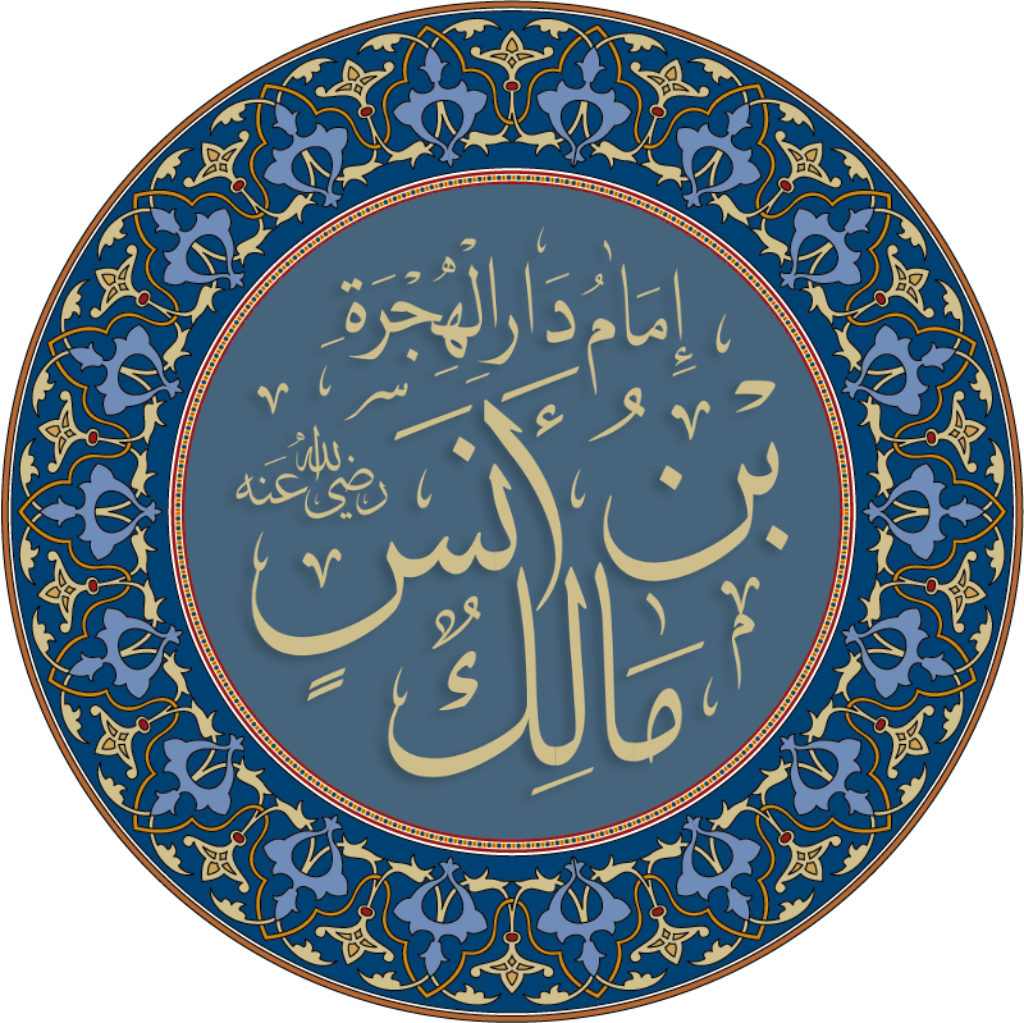Imam MÄlik
(رضي الله عنه) |

|
Jurist, Theologian, Hadith Traditionist, Maddhab Founder, TÄbi‘ al-TÄbi‘un;
Shaykh of Islam, Proof of the Community, Imam of the Abode of Emigration, Imam of Medina, Sage of Medina, The Guiding Star of the Scholars, Preserver of the Knowledge of the Hejaz
|
| Venerated in |
All of Sunni Islam (Salafi Sunnis honor rather than venerate him). |
| Major shrine |
Used to be in Jannatul Baqi before its destruction by the Kingdom of Saudi Arabia. |
MÄlik b. Anas b. MÄlik b. AbÄ« Ê¿Ä€mir b. Ê¿Amr b. al-ḤÄrit̲h̲ b. G̲h̲aymÄn b. K̲h̲ut̲h̲ayn b. Ê¿Amr b. al-ḤÄrit̲h̲ al-Aá¹£baḥī, often referred to as MÄlik ibn Anas (Arabic: مالك بن أنس‎; 711–795 CE / 93–179 AH) for short, or reverently as Imam MÄlik by Sunni Muslims, was an Arab Muslim jurist, theologian, and hadith traditionist. Born in the city of Medina, Malik rose to become the premier scholar of prophetic traditions in his day, which he sought to apply to "the whole legal life" in order to create a systematic method of Muslim jurisprudence which would only further expand with the passage of time. Referred to as the Imam of Medina by his contemporaries, Malik's views in matters of jurisprudence were highly cherished both in his own life and afterwards, and he became the founder of one of the four orthodox legal schools of Sunni law, the Maliki rite, which became the normative rite for the Sunni practice of much of North Africa, Andalusia, a vast portion of Egypt, and some parts of Syria, Yemen, Sudan, Iraq, and Khorasan, and the standard rite for several prominent orthodox Sufi orders, including the Shadiliyya and the Tijaniyyah.
Perhaps Malik's most famous accomplishment in the annals of Islamic history is, however, his compilation of the Muwatta, one of the oldest and most revered Sunni hadith collections and one of "the earliest surviving Muslim law-book[s]," in which Malik attempted to "give a survey of law and justice; ritual and practice of religion according to the consensus of Islam in Medina, according to the sunna usual in Medina; and to create a theoretical standard for matters which were not settled from the point of view of consensus and sunna." Composed in the early days of the Abbasid caliphate, during which time there was a burgeoning "recognition and appreciation of the canon law" of the ruling party, Malik's work aimed to trace out a "smoothed path" (which is what al-muwaá¹á¹aʾ literally means) through "the farreaching differences of opinion even on the most elementary questions." Hailed as "the soundest book on earth after the Quran" by al-Shafi'i, the compilation of the Muwatta led to Malik being bestowed with such reverential epithets as Shaykh of Islam, Proof of the Community, Imam of the Abode of Emigration, and Knowledgable Scholar of Medina in later Sunni tradition.
...
Wikipedia